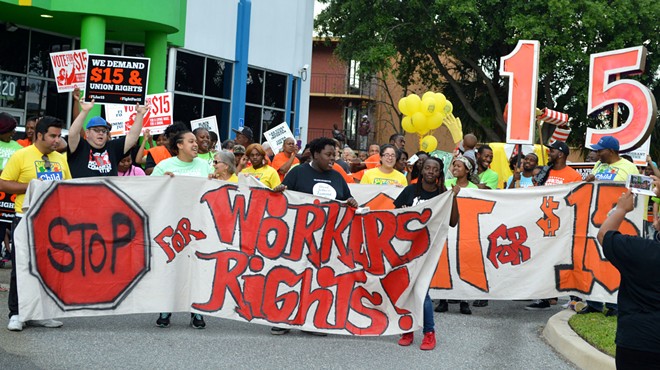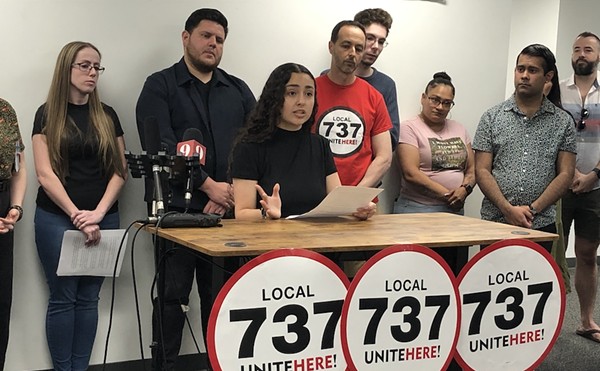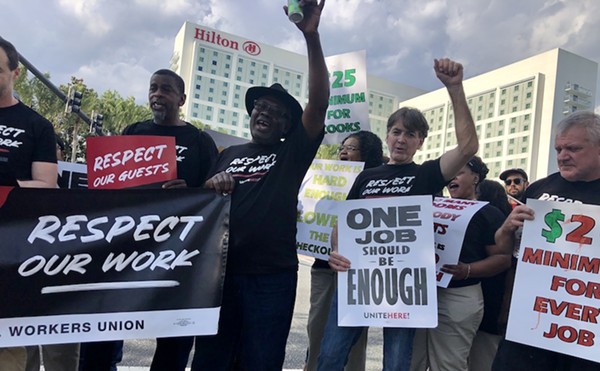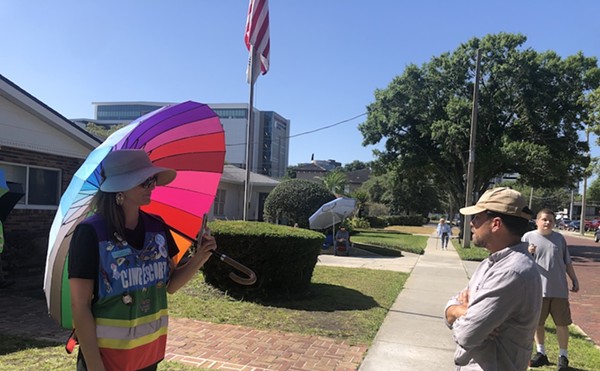The “Live Local Act” was the signature policy issue of Senate President Kathleen Passidomo last year, and the $711 million project was quickly approved during the 2023 legislative session. But since it went into effect in July, there’s been complaints about various aspects of the law that have rippled throughout the state.
“As we know [in] the passage of large and complex legislation, lessons learned during implementation highlight the need for minor adjustments. That’s what this bill does,” Miami-Dade County Republican Alexis Calatayud, the Senate sponsor or the Live Local Act, said earlier this week when introducing her new bill (SB 328) to address some of the criticisms. “We received feedback from many parties over the interim as the implementation of the bill commenced and we’ve identified necessary enhancements to effectuate the original intent of the legislation and further the goal of increasing the workforce inventory.”
In Pasco County just north of Tampa, however, officials said that the law was detrimental to long-term efforts to their efforts to bring more businesses to the community.
The new 2024 bill now removes industrial properties from the areas that developers would have received a tax break if they built affordable housing there.
David Goldstein, the chief assistant county attorney in Pasco, praised the 2024 legislation while testifying before the Senate Community Affairs Committee earlier this week – but added that he still had other concerns.
“The biggest issue is our commercial sites,” he said. “We appreciate the fact that the bill removes industrial from the applicability of the Act, but we have some very important commercial sites in Pasco County. Pasco County has historically been kind of a bedroom community to Hillsborough and Pinellas County. We’re trying to reverse that trend. We want to make sure that we have sort of work local, not just live local.”
The bill sponsors said last year that the Live Local Act was also designed to help those in the “missing middle” get an opportunity to afford a home. That’s defined in the legislation as households earning between 80%-120% of the area medium income (AMI). Those in that income bracket are traditionally considered to earn too much to benefit from traditional affordable housing programs but not enough to afford higher end apartments.
But Goldstein said that a California developer is now using the tax breaks from the Live Local Act to offer two-bedroom homes for $2,000 a month in rent, homes which he said were just “market-rate rents.”
“We support affordable housing,” he told the committee. “We support tax exemptions for affordable housing, but the first application that we have in with the Florida Housing Finance Corporation, it’s not really affordable. It’s about a three-quarters of a million-dollar tax exemption, which is going to impact our ability to provide public services. That’s 14 sheriff deputies for us. We don’t mind making that sacrifice if it’s providing true affordable housing…but the first application that came in is not affordable.”
Here are some other proposed changes to the 2023 Live Local Act included in Calatayud’s bill:
A county may not restrict the floor area ratio of a Live Local development below the highest currently allowed floor area ration in the jurisdiction where residential development is allowed under the county’s land development regulations.Amends the height entitlements for Live Local projects, by reducing the distance from 1 mile to one-quarter mile.
A proposed development will be entitled to the highest currently allowed height, within one-quarter mile or three stories, whichever is higher.If the height of each building on property adjacent to the proposed development is 3 stories or less, the county may restrict the height of the proposed development to 135 percent of the tallest building on property adjacent to the proposed development or 3 stories, whichever is higher.
The bill passed unanimously in the committee, and now moves to the Fiscal Policy Committee before hitting the Senate floor. It’s equivalent in the House (HB 1239) was filed earlier this week by Miami-Dade County Republican Vicki Lopez, and has yet to be assigned to any committees yet.
Florida Phoenix is part of States Newsroom, a network of news bureaus supported by grants and a coalition of donors as a 501c(3) public charity. Florida Phoenix maintains editorial independence. Contact Editor Diane Rado for questions: [email protected]. Follow Florida Phoenix on Facebook and Twitter.
Subscribe to Orlando Weekly newsletters.
Follow us: Apple News | Google News | NewsBreak | Reddit | Instagram | Facebook | Twitter | Or sign up for our RSS Feed



















